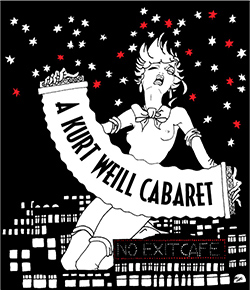
 Highly Recommended *****How lucky are we! The people of Chicago are blessed that Fred Anzevino and his Theoubique Cabaret Theatre exists in Rogers Park. In this quaint and intimate space on Glenwood Avenue- a place that I recall from the folk song days of the 1960’s,\, Anzevino and his ensemble bring us full scale musicals brought down to the intimacy of a “cabaret” performance on a regular basis, but where he truly shines, is bringing us true yCabaret performance pieces. In fact, kidding with him at tonight’s opening of “A Kur Weill Cabaret”, I said to him that his middle name could be Cabaret- he laughed, but shook his head with a smile. He understands what Cabaret should be and brings the best to our city.
Highly Recommended *****How lucky are we! The people of Chicago are blessed that Fred Anzevino and his Theoubique Cabaret Theatre exists in Rogers Park. In this quaint and intimate space on Glenwood Avenue- a place that I recall from the folk song days of the 1960’s,\, Anzevino and his ensemble bring us full scale musicals brought down to the intimacy of a “cabaret” performance on a regular basis, but where he truly shines, is bringing us true yCabaret performance pieces. In fact, kidding with him at tonight’s opening of “A Kur Weill Cabaret”, I said to him that his middle name could be Cabaret- he laughed, but shook his head with a smile. He understands what Cabaret should be and brings the best to our city.
Many young people are unfamiliar with Kurt Weill, with the exception of those who know “The Threepenny Opera” and mainly because of “Mack The Knife”, but here was a composer that was probably one of the most successful in Germany, creating some truly masterful works that might be called “Chamber Operas” prior to Hitler taking over. Brecht was his partner in the days of Germany. From 1910 until the early thirties, we get to see his special work and then in the second act, when he has arrived in New York, we get to hear some of the wonderful music that he wrote with lyrics by such notables as Alan Jay Lerner, Ira Gershwin, Maxwell Anderson and Langston Hughes. Songs like the haunting “September Song” and “Lost in The Stars” with a very special arrangement by musical director Jeremy Ramey, who truly understands the music and style of Weill.
This is a slick production with five extraordinary voices under the direction of Anzevino and Ramey with solid 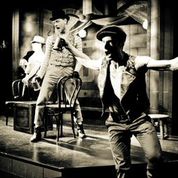 choreography by Christie Kerr. The No Exit Cafe (the actual name of this adorable store-front) is a small space with the performers very close to the audience and the movement is somewhat limited to the stage and side areas that have been built by Adam Veness who also handles the props. Bill Morey’s costumes are classic 1930’s in the first act and then very formal, concert style in the second act. Maya Michele Fein’s lighting effects are simple but perfect for the moods that are created by the special arrangements that Ramey has created for us.
choreography by Christie Kerr. The No Exit Cafe (the actual name of this adorable store-front) is a small space with the performers very close to the audience and the movement is somewhat limited to the stage and side areas that have been built by Adam Veness who also handles the props. Bill Morey’s costumes are classic 1930’s in the first act and then very formal, concert style in the second act. Maya Michele Fein’s lighting effects are simple but perfect for the moods that are created by the special arrangements that Ramey has created for us.
What makes “cabaret” work is the ensemble. Their voices are magical as they blend as an ensemble, do solos and even a major number done acapella (“Lost In The Stars” is amazing). Kellie Cundiff, Christopher Logan, Jordan Phelps, Michael Reyes and Jill Sesso. Remember these names, as they are ones that you will be seeing more of in the Chicago theater scene .From the deepest of notes from Michaelin “September Song”, to the amazing “Saga of Jenny”, a sexy little number handled to perfection by Kellie and Jill. Each and every song is sung. We feel what it was like for Weill in the early days in Germany and then the upscale Broadway musicals, as he prospered in New York. He returned home to Germany to finish his life and left us with a legacy that allows many major artists to fill their “songbooks” with his music: Billie Holliday,Bing Crosby,Ella Fitzgerald, Tony Bennett, Sting ,Frank Sinatra and many others.
“A Kurt Weill Cabaret” will continue at No Exit Cafe (TheoUbique) through October 19th with performances as follows:
Thursdays at 7:30 p.m.
Fridays and Saturdays at 8 p.m.
Sundays at 7 p.m.
FYI-Thru October 6th, you can still catch their other Cabaret show “A Musical Tribute To The Andrew Sisters” on Mondays and Wednesdays.
Tickets for “A Kurt Weill Cabaret” range from $25-$29 (seniors and students $20-$24) and are available by calling 800-595-4849 or online at www.theo-u.org
Dinner menu for this production at $25 additional and reservations are required dinner served one hour before curtain.
The theater is located at 6970 N. Glenwood, just North of Morse Avenue RED line stop.
To see what others are saying visit www.theatreinchicago.com, go to Review round-up and click at “A Kurt Weill Cabaret”
Running time with intermission-2 glorious hours.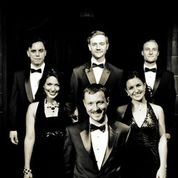


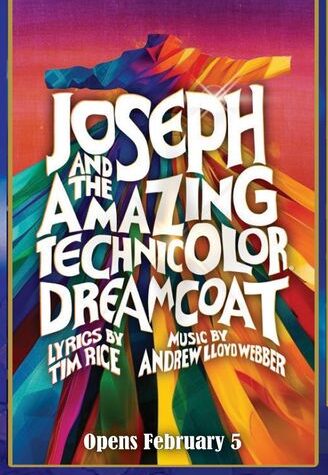
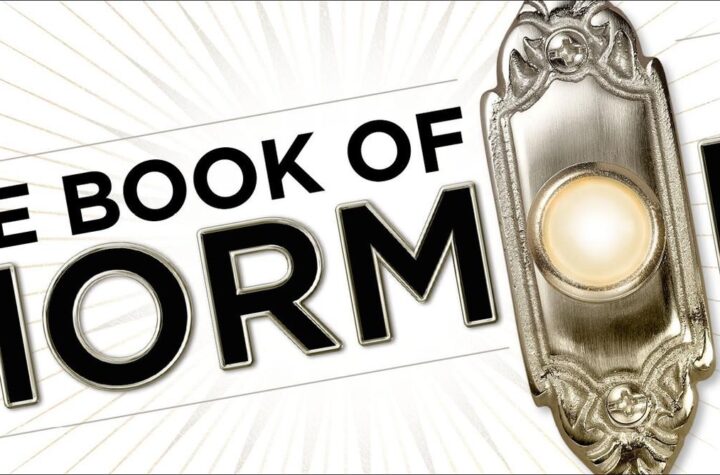

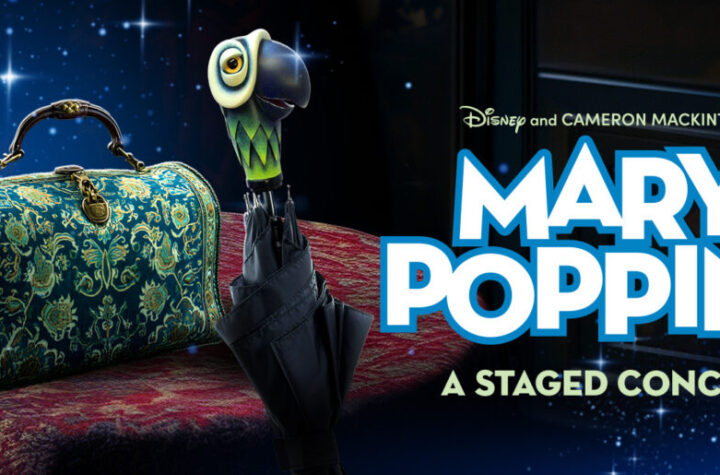
More Stories
“Joseph and the Amazing Technicolor Dreamcoat”
“The Book Of Mormon” ( Milwaukee) reviewed by Amy Menzel
“The Joffrey Ballet’s Golden Hour” reviewed by Carol Moore